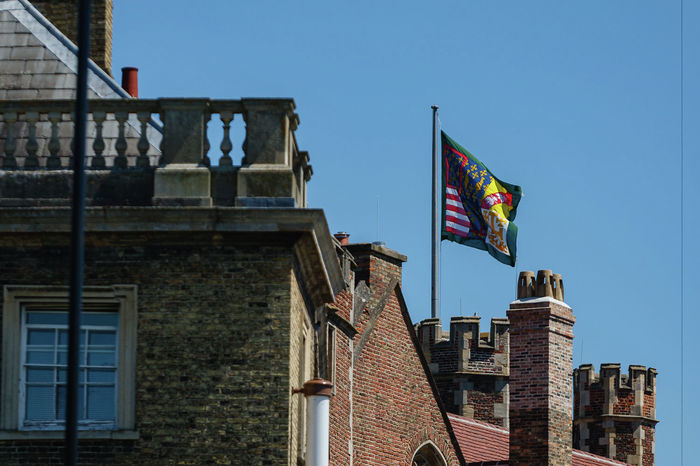‘Free speech absolutist’ Charlie Palmer on his ‘unsexy’ plans for the Union
Following his unexpected promotion to President of the Cambridge Union, Charlie Palmer talks to Varsity about his upcoming term

After the implosion of Max Ghose’s presidency following his involvement in ballot stuffing, Charlie Palmer as the then-vice president was left to pick up the pieces.
As the fourth ever unelected Union president, Palmer is an unknown entity to many in the University. This doesn’t seem to bother him. He tells me he’s “perfectly happy to be an unknown”, adding not-so-jokingly that he would be “deeply disappointed” in himself if he appeared on the BNOC list. While he sees other presidents as having pushed “a public persona” during their election campaign and time in office, this is something he wants to avoid.
Palmer casts himself as a safe pair of technocratic hands, a contrast to the chaos of Ghose’s short-lived presidency. It is not the first time such a contrast has been employed. Sunak after the Truss debacle comes to mind. The Palmer presidency has no time for boxing matches and the other colourful, unfulfilled promises which have littered Union manifestos over the last few years. This aversion to fanfare is unsurprising given Palmer’s experience as vice president. Within the Byzantine inner workings of the Union the vice president plays the role of a grey eminence. Avoiding the spotlight while “getting stuff done” in Palmer’s words.
Though he acknowledges that the presidency is more public-facing than his previous post, he seems intent on carrying on similarly. Palmer views his unconventional path to power as an asset. Committee applications can now be done purely based on merit because he “doesn’t owe anyone favours”. He also wants to use the term to focus on the “unsexy” but important parts of the Union that have been previously overlooked. He was particularly keen to tell me that a major focus of his term would be boosting the Union’s outreach programmes.
“Union presidents all too often find their fifteen minutes of fame for all the wrong reasons”
The quietly competent ideal that Palmer espouses stands out among the megalomania which many see as part and parcel of Union politics. But for all of Palmer’s hard-nosed positioning away from the spotlight, his vision may be a touch too idealistic. Union presidents all too often find their 15 minutes of fame for all the wrong reasons.
The Union’s position as a free speech society can make it a conduit for controversy. While Palmer insists that the Union is not looking for controversy for controversy’s sake, he does describe himself as a “free speech absolutist”. It is a surprisingly radical admission in the context of recent Union presidents who have been more equivocal about the society’s commitment to free speech.
The latest Trustees’ Report announced that the Union had codified the procedure for the selection of controversial speakers “to minimise risk to the charity’s reputation” and gave trustees the final say on invitations. I asked Palmer whether this conflicted with his own views on free speech, and the Union’s student-led structure. Palmer says that trustees play a largely supporting role rather than a supervisory one. “If we have a controversial speaker coming up, we’ll notify the trustees and get their thoughts on if any extra preparations will need to be put in place … but I’m never aware of any occasion in which they’ve made any decision on who to invite”.
“If Trump wanted to come out, I would absolutely invite him, yes”
I put Palmer’s absolutism to the test by asking whether he would invite or disinvite controversial public figures. Kanye West predictably caused a bit of squirming. While Palmer promised he wouldn’t disinvite the pop star turned pariah, he wouldn’t go out of his own way to invite West either, hinting that “mental health support” might be a better use of West’s time than coming to the Union. On Kathleen Stock, the most recent source of controversy at the Union, he supported the decision to host her and would’ve invited Stock himself given the chance. Similarly, Palmer also supported hosting the Israeli ambassador, Tzipi Hotovely.
On Donald Trump he was particularly enthusiastic. “If Trump wanted to come out, I would absolutely invite him, yes,” but conceding: “It would very much be a pipe dream.”
There have been easier times to be a president of a society whose mission it is to defend free speech. Palmer’s absolutism is increasingly unpopular among young adults. In a 2021 YouGov Poll, 50% of people aged 18-24 claimed protection from offence should take priority over free speech, the highest proportion of any age group.
I asked Palmer how the Union can balance this popular sentiment with its commitment to free speech. He emphasised the Union’s role as a debating society, arguing Stock and Hotovely “found themselves very much challenged … if it wasn’t a comfortable space for some members of our society, it was also not a comfortable space for those two to be in.” Whether or not these headwinds are a temporary storm or instead part of a larger, post-liberal shift remains to be seen.
 News / Cambridge students set up encampment calling for Israel divestment6 May 2024
News / Cambridge students set up encampment calling for Israel divestment6 May 2024 News / Cambridge postgrad re-elected as City councillor4 May 2024
News / Cambridge postgrad re-elected as City councillor4 May 2024 News / Some supervisors’ effective pay rate £3 below living wage, new report finds5 May 2024
News / Some supervisors’ effective pay rate £3 below living wage, new report finds5 May 2024 Fashion / Class and closeted identities: how do fits fit into our cultures?6 May 2024
Fashion / Class and closeted identities: how do fits fit into our cultures?6 May 2024 Features / Cambridge punters: historians, entertainers or artistes? 7 May 2024
Features / Cambridge punters: historians, entertainers or artistes? 7 May 2024







